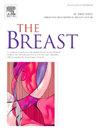欧洲乳腺癌患者对基因组检测的认识
IF 5.7
2区 医学
Q1 OBSTETRICS & GYNECOLOGY
引用次数: 0
摘要
目的基因组检测,包括肿瘤组织的表达谱,是确定某些癌症患者适当治疗的有力工具。这项研究旨在评估五个欧洲国家乳腺癌患者对基因组检测的认识。该调查由欧洲癌症患者发起,由患者协会、肿瘤学家和一名心理肿瘤学家共同开展。参与者是通过电子邮件和社交媒体招募的,并完成了一份包含42个问题的网络调查。在符合条件的国家完成调查的1383名参与者中,分析了566名目前或以前患有HR+/HER2-乳腺癌的女性,这些女性可能符合基因组检测的条件。年龄介乎50至59岁者245人(43.3%),受过高等教育者381人(67.3%)。238名参与者(42.1%)听说过基因组检测;122人(21.6%)被告知他们有资格进行检测,104人(18.4%)被告知进行检测的原因。多数(N = 479;84.6%)认为他们缺乏足够的信息来决定,只有139(24.6%)选择检测。总的来说,246人(43.5%)想要更多关于额外检测的信息,234人(41.3%)想要更多关于治疗方案的信息。主要信息来源为医疗专业人员(N = 363;64.1%)和互联网(N = 351;62.0%)。然而,398名参与者(70.3%)表示,他们的医疗保健专业人员没有告诉他们在哪里可以找到更多的信息。结论:这项研究强调了人们对乳腺癌基因组检测的认识和获取不足。医疗保健专业人员需要就基因组测试改善与患者的沟通,并让他们参与共同决策。同样,患者协会在向患者提供明确信息方面也发挥着作用。本文章由计算机程序翻译,如有差异,请以英文原文为准。
Awareness of genomic testing among patients with breast cancer in Europe
Purpose
Genomic testing, involving expression profiling of tumour tissue, is a powerful tool for determining appropriate treatments for certain cancer patients. This study aimed to evaluate awareness of genomic testing in breast cancer patients in five European countries.
Methods
The survey was initiated by Cancer Patients Europe and developed with patient associations, oncologists, and a psycho-oncologist. Participants were recruited via email and social media and completed a 42-question internet survey.
Results
Of 1383 participants in eligible countries completing the survey, 566 women with current or previous HR+/HER2- breast cancer, potentially eligible for genomic testing, were analysed. 245 (43.3 %) were aged 50–59 years and 381 (67.3 %) had received higher education. 238 participants (42.1 %) had heard about genomic testing; 122 (21.6 %) were informed of their eligibility for testing, and 104 (18.4 %) were given reasons for the test. The majority (N = 479; 84.6 %) felt they lacked sufficient information to decide, and only 139 (24.6 %) opted for testing. Overall, 246 (43.5 %) wanted more information on additional testing and 234 (41.3 %) wanted more information on treatment options. The main information sources were medical professionals (N = 363; 64.1 %) and the internet (N = 351; 62.0 %). However, 398 participants (70.3 %) indicated that their healthcare professionals did not advise them on where to find more information.
Conclusions
This study highlights insufficient awareness of, and access to, genomic testing in breast cancer. Healthcare professionals need to improve communication with patients regarding genomic testing and involve them in shared decision-making. Likewise, patient associations have a role in providing clear information to patients.
求助全文
通过发布文献求助,成功后即可免费获取论文全文。
去求助
来源期刊

Breast
医学-妇产科学
CiteScore
8.70
自引率
2.60%
发文量
165
审稿时长
59 days
期刊介绍:
The Breast is an international, multidisciplinary journal for researchers and clinicians, which focuses on translational and clinical research for the advancement of breast cancer prevention, diagnosis and treatment of all stages.
 求助内容:
求助内容: 应助结果提醒方式:
应助结果提醒方式:


